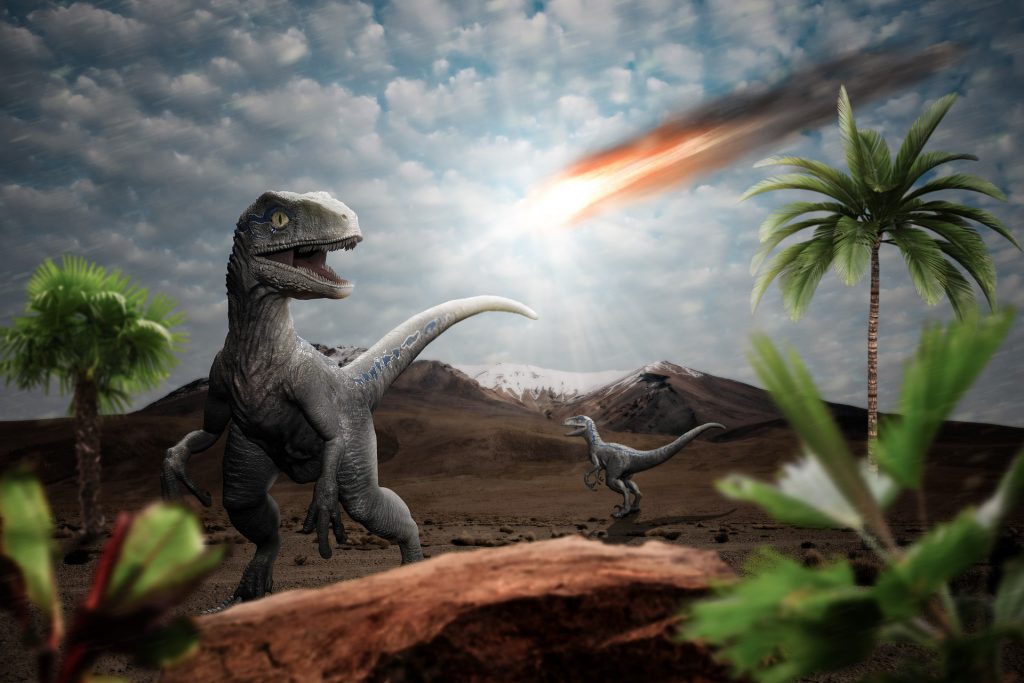By Kay Smythe
A study published in March argues the asteroid that killed the dinosaurs did not create a “nuclear winter.”
For as long as one can remember, the reigning paradigm regarding the near-extinction asteroid event during the rule of the dinosaur has focused on the initial impact and the long-lasting nuclear winter caused by said impact. A “nuclear winter” is considered an extended period of cold and darkness, according to Britannica. However, a study published in the journal Geology argues against this paradigm, citing a slew of new evidence that suggests Earth went through quite a different experience following the asteroid’s impact.
“We found that there was no evidence for the ‘nuclear winter,’” study co-author Lauren O’Connor told LiveScience in an article published Wednesday. “At least, not in the resolution of our study.” The study found that during the 1,000 years following the impact, bacteria did not respond as one would assume during winter climates.
The study found a roughly 5,000-year warming trend that appeared to stabilize relatively quickly. The researchers hypothesized that these warmer years may have been triggered by a series of supervolcano eruptions that emitted CO2 into the atmosphere.
However, this doesn’t mean the initial impacts of the asteroid weren’t enough to have a significant impact. “If you just had months without the sun, it would be enough to kill most of the plants in the world,” University of Texas geophysicist Sean Gulick told LiveScience. Still, O’Connor’s team demonstrated there probably was a short period of cold and darkness, though it seemingly did not lead to a long-term cooling trend.
Future research by the teams will likely focus on how the asteroid impact and rise in volcanic activity played out during that period. It’s hoped the data will better inform our current understanding of climatology.
Kay Smythe is a news and commentary writer for The Daily Caller.
To read more about volcanic emissions, click here.
To read more about carbon dioxide, click here.
